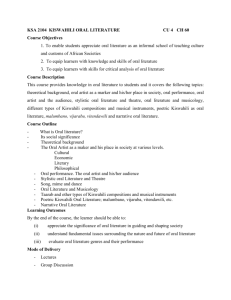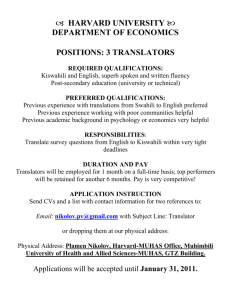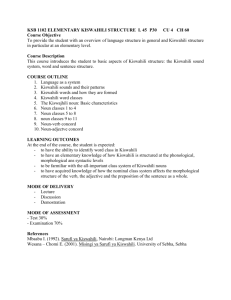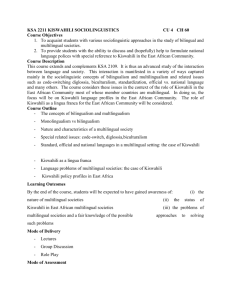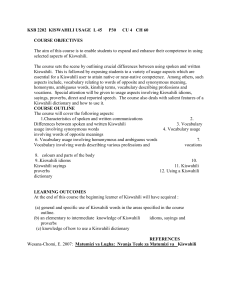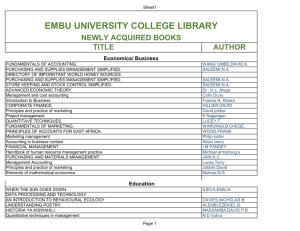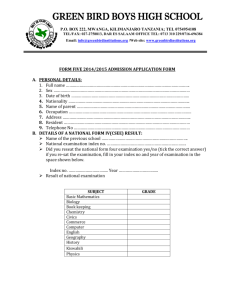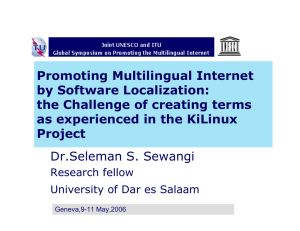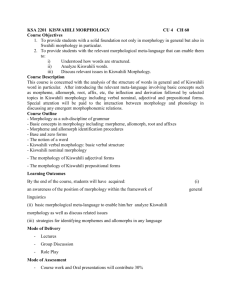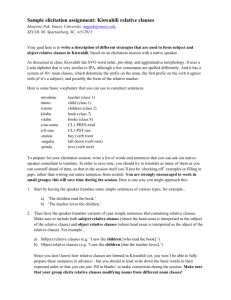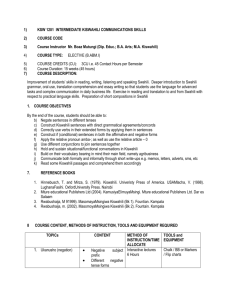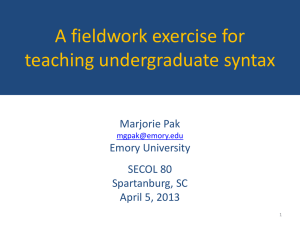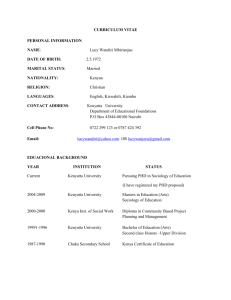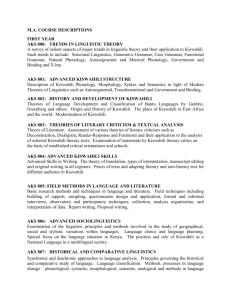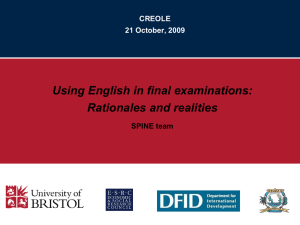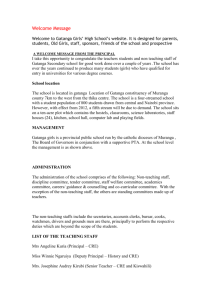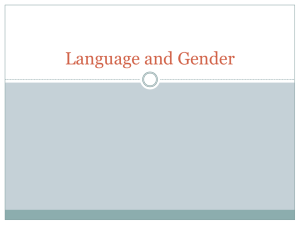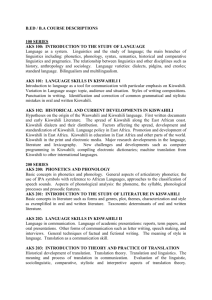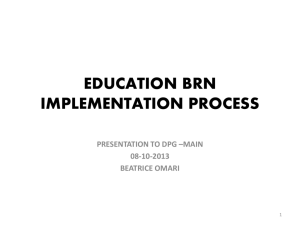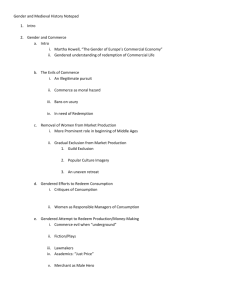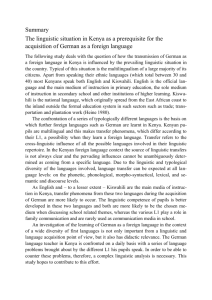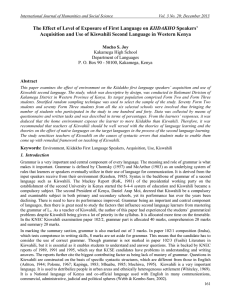KSA 2112 KISWAHILI AND GENDER RELATIONSCU 4CH 60
advertisement
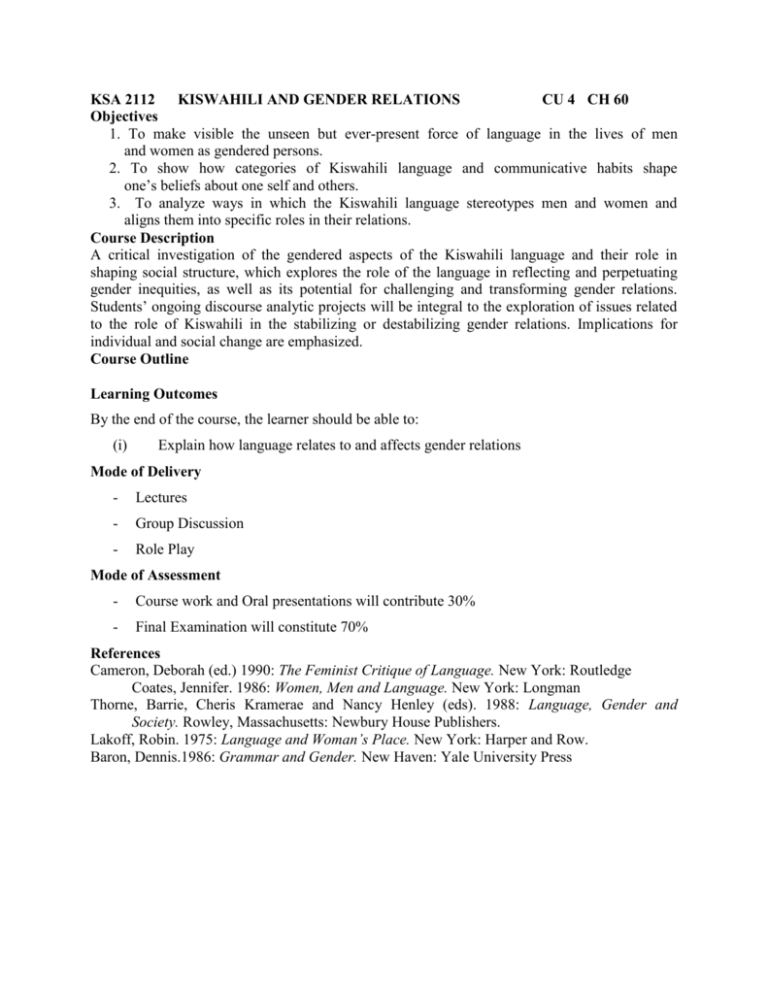
KSA 2112 KISWAHILI AND GENDER RELATIONS CU 4 CH 60 Objectives 1. To make visible the unseen but ever-present force of language in the lives of men and women as gendered persons. 2. To show how categories of Kiswahili language and communicative habits shape one’s beliefs about one self and others. 3. To analyze ways in which the Kiswahili language stereotypes men and women and aligns them into specific roles in their relations. Course Description A critical investigation of the gendered aspects of the Kiswahili language and their role in shaping social structure, which explores the role of the language in reflecting and perpetuating gender inequities, as well as its potential for challenging and transforming gender relations. Students’ ongoing discourse analytic projects will be integral to the exploration of issues related to the role of Kiswahili in the stabilizing or destabilizing gender relations. Implications for individual and social change are emphasized. Course Outline Learning Outcomes By the end of the course, the learner should be able to: (i) Explain how language relates to and affects gender relations Mode of Delivery - Lectures - Group Discussion - Role Play Mode of Assessment - Course work and Oral presentations will contribute 30% - Final Examination will constitute 70% References Cameron, Deborah (ed.) 1990: The Feminist Critique of Language. New York: Routledge Coates, Jennifer. 1986: Women, Men and Language. New York: Longman Thorne, Barrie, Cheris Kramerae and Nancy Henley (eds). 1988: Language, Gender and Society. Rowley, Massachusetts: Newbury House Publishers. Lakoff, Robin. 1975: Language and Woman’s Place. New York: Harper and Row. Baron, Dennis.1986: Grammar and Gender. New Haven: Yale University Press
